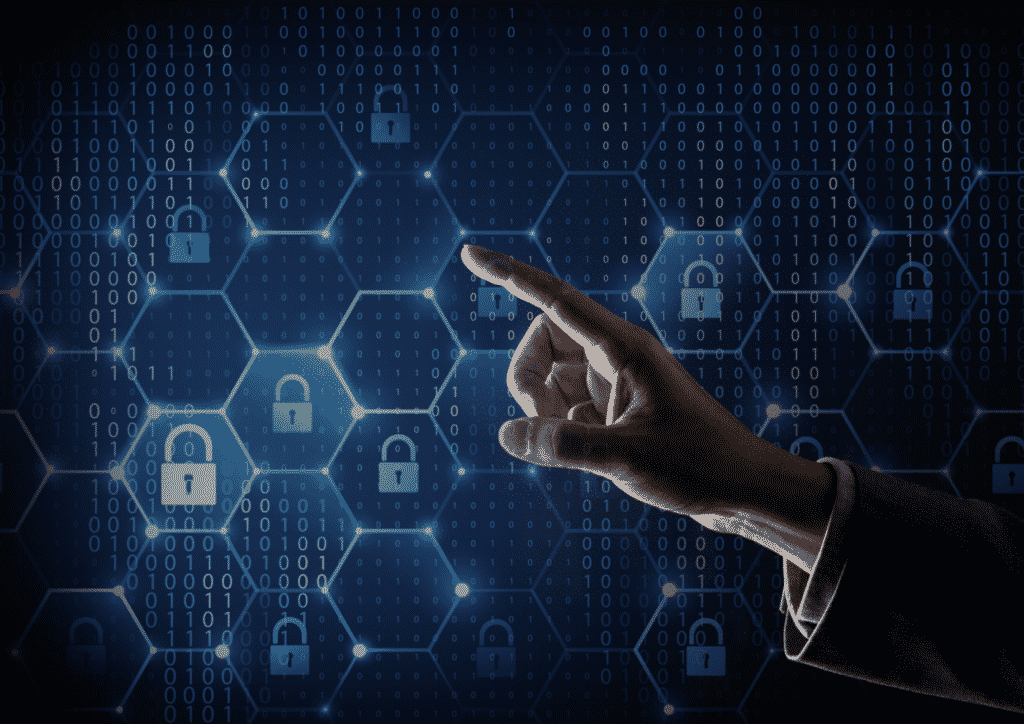With the ever-increasing connectivity of our world, the importance of cybersecurity defense is essential to protect your business. You may have already read our blog post on ransomware and learned several concrete steps you can take to stay secure. While understanding the technology behind your defense is important, the human element is another, possibly more, critical component of your cybersecurity strategy. Human defense against threats, through behaviors and understanding, is known as the human firewall.
What is the Human Firewall?
The term, “human firewall” refers to how well a team can secure their network. It is the education and training of individuals to provide a people-based approach within the company. Similar to a firewall device or software protecting the network, employees can be given the tools to recognize, analyze, investigate, and respond to cybersecurity threats. Oftentimes, an employee may be the last line of defense.
Scaling your efforts across the people in your organization is why the human firewall element of your cybersecurity defense is so important. Even if you have all your systems updated and protected, your organization is still vulnerable to cybercrimes, especially as they become increasingly advanced. In fact, according to Tessian, 88% of data breaches are caused by human error.
What can you do to ensure your team is well prepared? Continue reading to learn two quick and easy ways to boost your security posture.
Establish Ongoing Cybersecurity Training
To adequately educate and prepare your team, you’ll need to establish cybersecurity training that is specific to your organization’s unique risks and needs. Iuvo Technologies states that, “Training to be a human firewall is not a one-time thing… The training needs to organically grow and be an ongoing part of your company’s cyber awareness.” Ongoing training is important to keep updated on the latest cybersecurity threats and to ensure your team is confident in responding to them.
Training will vary depending on your team’s needs. It may include visual training with real life examples, practice phishing scenarios, and follow-up quizzes. Above all, training should be fun, personal, and engaging. Ashley Rose, CEO of Living Security, reminds us that, “Every employee has a different level of cyber hygiene… Ensure that employees are provided with personalized security initiatives, including reminders and additional training that directly addresses areas where they are having challenges.”
If you need assistance with your cybersecurity training, Varsity can help! We have a trusted team of cybersecurity experts that will work with you to customize a solution to support your security strategy. Learn more about our cybersecurity training and other managed security services.
Multi-Factor Authentication
Multi-factor authentication (MFA) is another excellent way to increase your human firewall defense. MFA is a security enhancement that asks you for several credentials when logging into an account. These credentials fall into any of these three categories: something you know (such as a password), something you have (such as a security token), or something you are (such as a fingerprint.)
MFA adds an additional layer of security and makes it more difficult for cybercriminals to compromise important data. If one credential is compromised, the attacker still has at least one or more barriers to breach before successfully completing a cyberattack. Teams feel much safer online using MFA, too: 86% say that using MFA makes them feel like their online information is more secure, according to TeleSign.
Are you interested in using multi-factor authentication but don’t know where to begin? Look no further than Varsity! We offer three levels of managed security services that can include multi-factor authentication. We will always meet your immediate needs while planning ahead for the future. Reach out to us to see how we can help.
When it comes to improving your human firewall strategy, find what works best for both your business and your team — there is no “one size fits all” approach. In a recent article by Tim Conkle, CEO of The 20, he states that, “People need respect and understanding to function. Target the human element by removing the questions and omitting the uncertainty. Give your people the chance to have a process that not only works with them but, most importantly, for them.”
If you’re interested in learning how your security strategy can work for your business and your team, contact Varsity today. We look forward to customizing a long-term, proactive approach for your security needs.


